We’re proud to be one of 68 grantee partners of the @BlackGirlFreedomFund (BGFF), an initiative of @GrantmakersForGirlsOfColor. Selected by their Grantmaking Council of Black girls, femmes and gender-expansive youth ages 14-22, these grants will support the leadership and organizing capacity of Black girls in 23 states, Washington D.C. and Puerto Rico. Along with BGFF, the #1Billion4BlackGirls campaign aims to mobilize $1 billion by 2030 to uplift Black girls.
Join us in celebrating Black girl leadership!
Visit https://bit.ly/BGFFGrantees22 to learn more!
You Might also like
-
GGM Greece wins Mediterranean Women’s Fund for Climate Project
GGM Greece recently received a grant from the Mediterranean Women’s Fund to launch a project in the UNESCO protected eco zone of Zagorochoria, a remote mountain region in Northern Greece. The project, titled DIAVA, or ‘road,’ will feature a media training and documentary on ‘transhumance’ historically practiced in the region.
An ancestral practice, transhumance relates to the seasonal driving of livestock and entails social practices and rituals related to the care, breeding and training of animals and the management of natural resources. Transmitted informally within families and communities, the practice strengthens cultural identity and ties between families, communities and territories while counteracting the effects of rural de-population. The project is in partnership with the Eco Museum of Zagori: https://ecomuseumzagori.gr/Post Views: 1,959 -
GGM GREECE HOSTS EVENING “OVER TO HER”
Global Girl Media Greece hosts a very special evening in Athens, October 2, 2021.
OVER TO HER is a podcast and video series produced by GGM Greece to promote the goals of the United Nation’s Gender Equality Forum. Six videos and an ongoing podcast celebrate the current #metoo movement, broken open by Olympic athlete and sailor, Sofia Bekatorou, who will be in attendance. The videos profile various feminist organizations, activists, leaders and female entrepreneurs, tackling intersectional issues of women’s and refugee rights.GLOBAL GIRL MEDIA GREECE is a media and leadership collective of both Greek and refugee/migrant young women in Athens that utilizes media to fight for women’s rights: www.gobalgirlmediagreece.com. They are the ONLY group organizing and raising awareness in the Greek media (with translations in Farsi, Arabic and French) around gender justice issues, which is critical to the very survival of some of of their members. They use media as a tool of empowerment and are building a social enterprise to introduce more marginalized voices into the professional media landscape, resulting in real employment opportunities.
Post Views: 4,196 -
KOSOVO GIRLS DEFYING ISOLATION LIMITS
We’re excited to share an article from GlobalGirl Media Kosovo. Despite the isolation these girls face–many of the girl who work with GGM Kosovo have never even travelled outside Kosovo–their voices have been heard internationally through their work with GGM. Written by and about young women, this article focuses on five girls from across Kosovo, all of whom have achieved international recognition, despite the difficulties of travelling outside Kosovo.
In spite of the country’s visa isolation, Kosovo’s ambitious and passionate girls are breaking cultural and societal limits, showing that hard work can pass through any barrier.
Here is a snapshot of some of these girls.
Mrika Sefa: Pianist

Mrika Sefa in Casa da Musica, Porto, 08.07.2018. Photo credits: Alexandre Delmar. Mrika from Gjakova, is a 26 year old young woman, who began playing the piano when she was nine. Her passion for the piano began in her familial settings, where she was always surrounded by music.
“Music was part of our family luncheons and dinners, our festivities and even our most somber moments. My uncle, Florent Nushi, was a singer. He would sing as if he would talk. I always believed that the guitar was an extension of his body. And, just like this, my brothers, cousins and I would join him in singing. In the beginning I would sing and later on I began taking piano lessons.”
As a fourteen year old, Mrika began facing life’s challenges alone at the Prishtina Music High School. She was a regular participant in many concerns, among them the international music competitions organized from the “ArsKosova” Foundation. These competitions, during her childhood, she said, have really been a significant contributor to building her discipline and her work ethic, which led to her continuing her higher education at the “Musik-Akademie der Stadt” in Bassles, Switzerland, in “Hochschule der Künste” and “Hochschule für Musik” in Lucerne, Switzerland.
“Beginning my studies in Switzerland has not been easy, since there is no easy transition from Kosovo to Switzerland. They are two completely different realities”.
Yet, she has managed to partake in the “Yamaha” competition in Bern, where she won first prize. In the “Concours Musical de France”, she also won second place.
“I was very happy with these results, given that during my journey everything went wrong. Prior to joining the last competition, it seemed as if I was living a Federico Fellini screenplay”.
Mrika’s successes continued even at the “Hella Siegrist Wettbewerb” competition in Lucerne, where she was awarded with the “Special Mentioned Performance”.
She is currently working in a dual chamber music project, titled “DuoLitanei” with the portuguese cellist, Hugo Paiva.
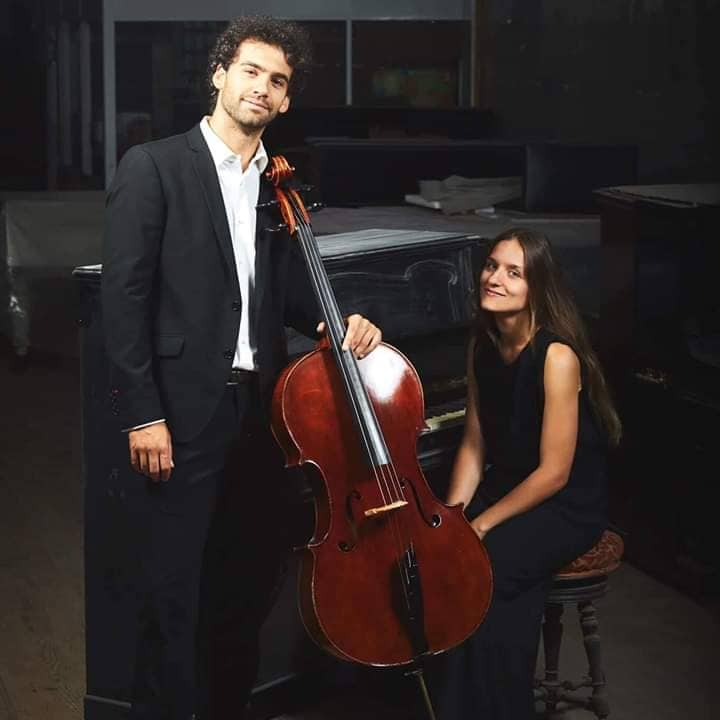
Hugo Paiva and Mrika Sefa during their photoshoot, Porto, July 2018. Photo credits: “Rui Bandeira fotografia”. Hana Arapi: Entrepreneur and Designer
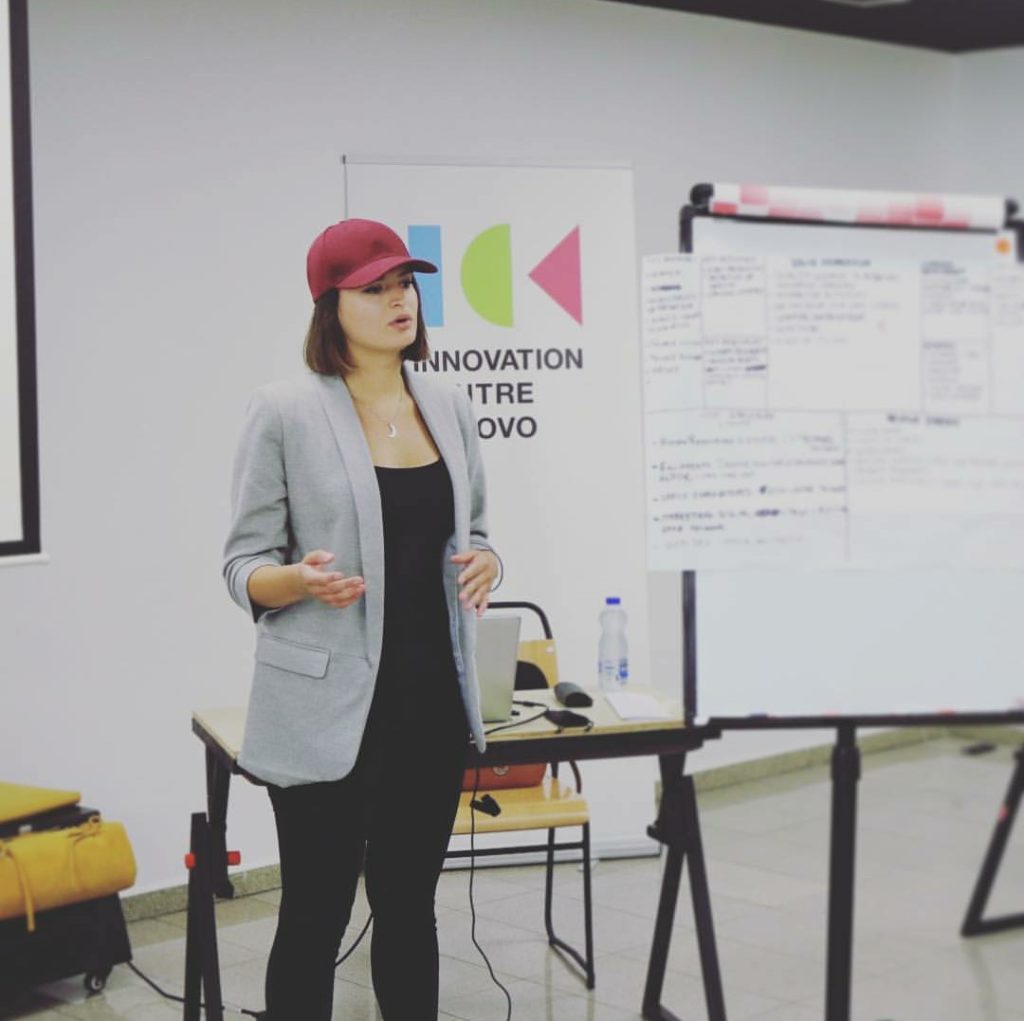
Hana Arapi during BootCamp at Social Impact Award, 30 September 2018. Photo credits: Drilon Balaj. Hana Arapi is from Prizren, but moved to the capital of Kosovo, Prishtina, to pursue her master studies in Graphic Design and operate a startup called “Amam Studio”, a creative animation studio.
Juggling two different engagements hasn’t been easy for her, especially in the last year. Hana had only 36 hours to prepare for opening up her last exhibit at the Prizren Hamam, while also starting up “Amam Studio”.
“Starting up a business has been a great challenge, but I have learned quite a lot, and I have had the chance to dedicate myself to many things that I have a huge interest in”.
Hana is also a founder of the “Videosinteza” an alternative education platform, which uses illustrations and animation to discuss various topics from science, technology and social sciences. The purpose of these videos is to engage, raise awareness and inform.
“The idea for creating Videosinteza came about from our desire to use design to have a positive social impact.”
Creating one episode for “Videosinteza” takes about 150-200 hours of work. With the “Videosinteza” project, her team is now part of the Innovation Centre Kosovo (ICK), where they are working to find alternative forms for making the product more accessible.
Hana hopes to contribute to breaking down barriers, injustices, stereotypes, sexism and violence that prevent women from achieving their potential through her initiatives and activities.
She is using entrepreneurship as a channel to step-by-step alleviate the barriers that women face and is highly inspired from her mother, who has built the strength in her over her lifetime to be able to face the challenges on the way.
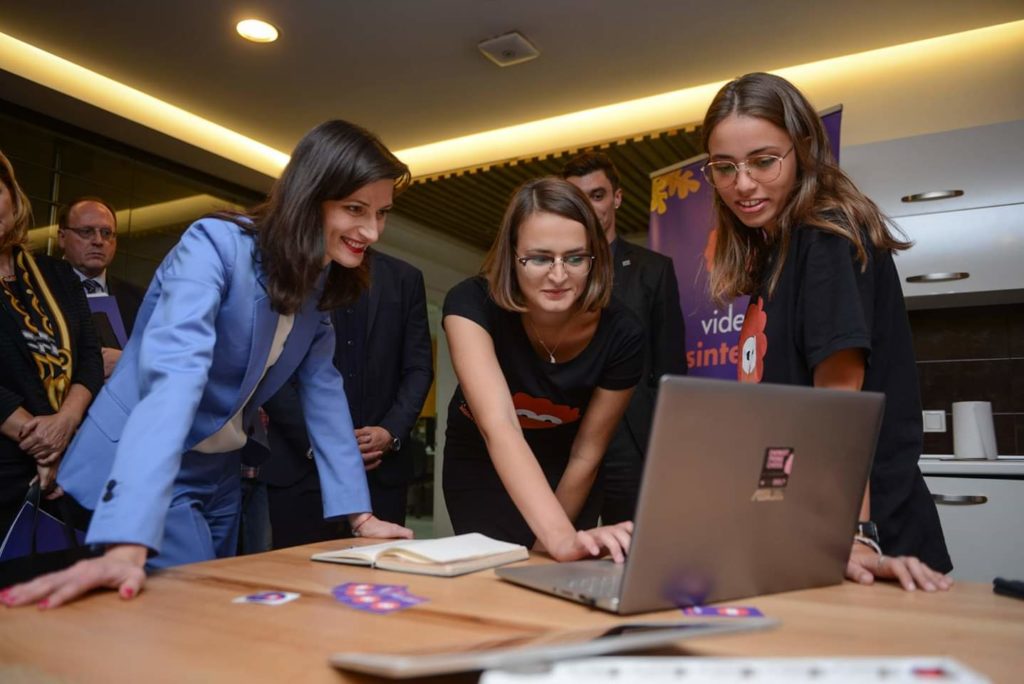
Mariya Gabriel, European Commissioner for Digital Economy and Society during her visit at Innovation Centre Kosovo and Hana Arapi presenting videosinteza. 11.10 2018, photo credits: Innovation Centre Kosovo. Rita Zeqiri: Athlete
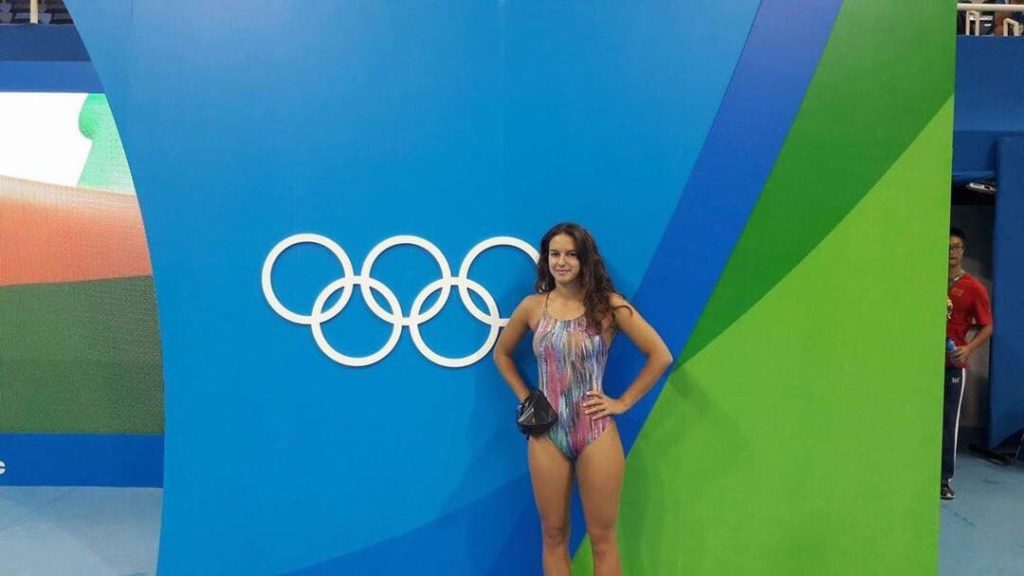
Rita Zeqiri, swimmer, representing Kosovo at Olympic Games. 7.8.2016, Rio de Janiero, Brazil. The 23 year old “iron-woman” from Prishtina has been swimming since she was nine years old. Ever since she was a child, she has been known for her athletic spirit.
“What makes sport difficult is the daily routine and discipline, more so than the competition. Suffering with years of constant physical and psychological tiredness is what sets apart the work of an athlete from that of others. It is the capacity to face constant stress that determines the length of your life as an athlete. In the beginning of my career, the most difficult work was that I didn’t have substantial knowledge of trainers and that we lacked basic necessities for pursuing this sport,” says Rita.
The first international medal she won was in 2009 in HercegNovi in Montenegro.
“Being a champion and a record-setter for Kosovo was very important, considering that based on those results, I also participated in the most important competitions in Europe for Kosovo at the European and World competitions, as well as in the Olympics in 2016.”
This year, Rita challenged herself by becoming part of the “IronMan” competition in France.
The IronMan triathlon is known to be one of the most challenging competitions, where you have to be prepared for swimming, cycling and running. She passed this challenge with much success and her experience as a swimmer helped her a lot and built the confidence she needed to join this competition.
“My day to day preparations for Iron man, mostly focused on cycling, as this was the most difficult discipline for me. Since the number of women that cycle is very small in Kosovo, considering that as soon as you start cycling on the street you are judged, and because there are no cycling paths on the streets. During IronMan, I struggled the most with cycling, because of the heavy winds, up to 40km/h – 25+miles/hour and the high terrain of up to 1300 meters/4000+ feet.”
Rita also works at “Step”, a Swimming Center, focusing on young swimmers. She is also training her little sister, Eda, who according to her is currently regarded as one of “the best swimmers in Kosovo” and preparing to represent Kosovo in the World Championship.
In the near future, Rita aims to successfully complete the Full Iron Man, which is the double in length from the competition in France, requiring 3.8 km of swimming, 180 km biking and 42 km running.
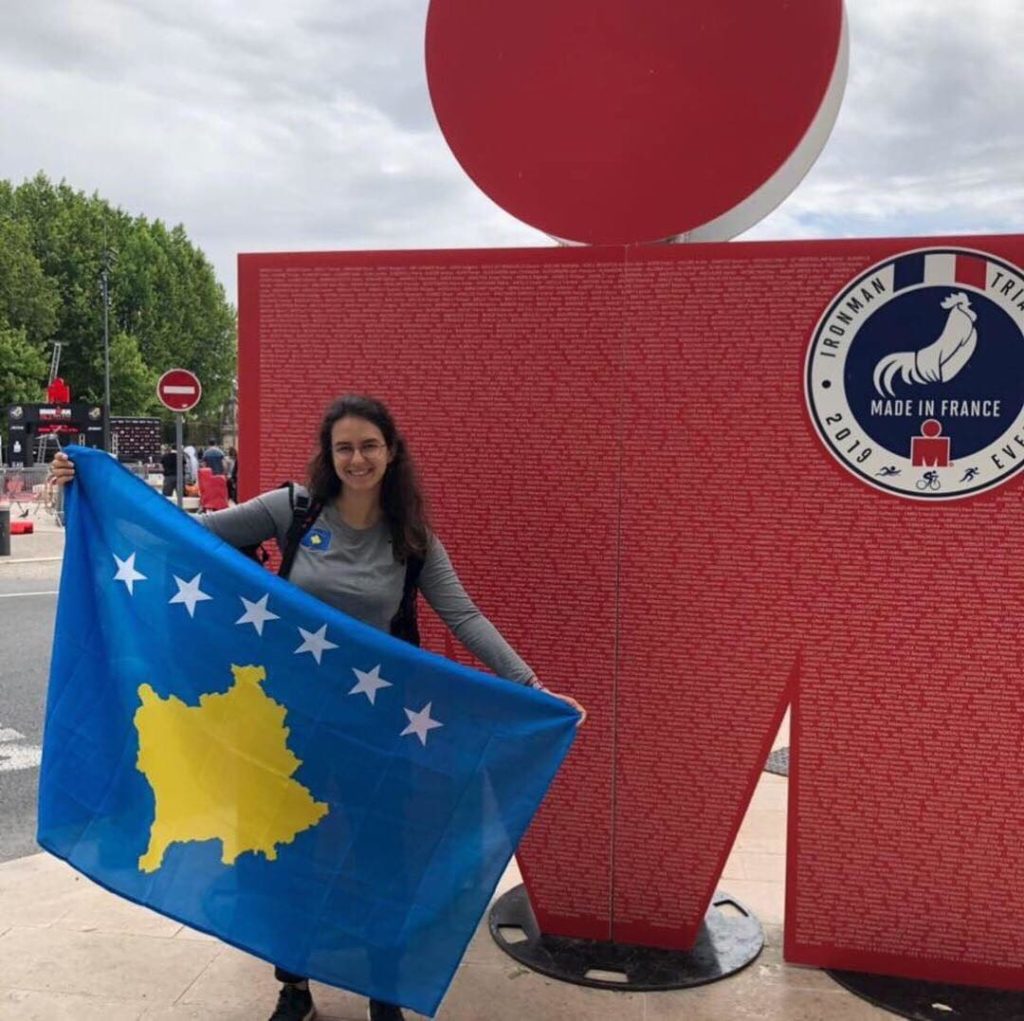
Rita Zeqiri participated in the triathlon race IronMan 70.3, 12.05.2019 Pays d’aix, France. Era Skivjani and Yllka Haxhikadrija: Producers of “Pa përkufizim”
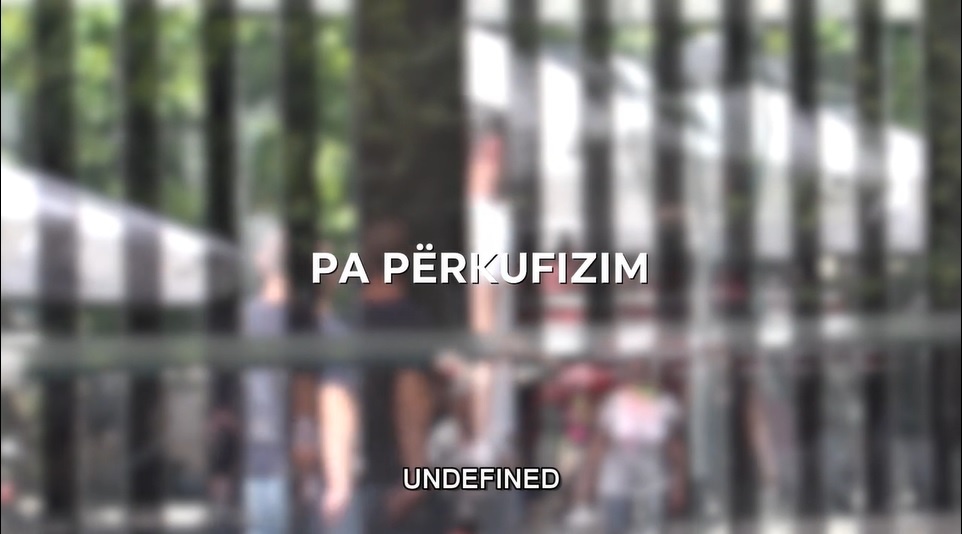
Still from Pa perkufizim Yllka (24) and Era (17), two young women from Gjakova, have recently produced their first film “Pa perkufizim”, translated as “No Definition”, which is a reflection of the feelings of youth in the face of prejudice.
Even though, Yllka is studying architecture and Era Information and Computer Technology. They share a common hobby: film production. Through film they hope to be able to touch upon subjects that hurt the livelihoods of their communities.
“Prejudice is an inseparable part of our society. Some of us are judged because of the life choices we make that are against tradition, while others are judged because of their faith, race and gender. We judge situations which we are incapable of understanding, because of our intellectual limitations and our lack of sufficient information and thus create an unsound stance towards something or someone,” says Yllka.
The “Pa Perkufizim” film depicts what lies behind judgment. The main reason for creating this documentary came about from a desire to raise awareness and educate viewers about the concept of judgment in our society in more depth.
For the young women, producing this film was difficult because they had to write the script and direct the documentary themselves. They also struggled with finding people who would be part of the film.
“A struggle for me was to find people that would feel comfortable to share their histories of struggle. Many of the people that had the best stories and the strongest messages did not want to be part of the documentary or gave up at the last moment.” – says Era.
The total length of the project, from ideation to film completion, was six months. Dokufest, provided them in-kind support, offering consultations, cameras, and working space. Dokufest is an International Documentary and Short-Film Festival which is held in the idyllic old town of Prizren in Kosova.
Era’s and Yllka’s “Pa Perkufizim” film was screened at “Dokufest” in Prizren, as well as in Gjakova at the Parku kulturor “Ali Podrimja”, and in Romania, at the “Culese din Balcani” at the “Free Zone Festival”, in Belgrade at the “Pravo Ljudski” Festival in Sarajevo.
During the month of March of this year, the documentary was screened in Venice at the “Ca’Foscari” festival, where it was also awarded with the Special Mention of Passinetti award.
As a visual artist, Era is now focusing on mural creation, while Yllka has just produced another short-documentary, jointly with Mateja Raickovic and Biljana Dulovic, as part of the “Creative Documentary Film Lab”. The film is planned to premiere in August of 2019 at Dokufest and then it will be shown at Pravo Ljudski Film Festival in Sarajevo.
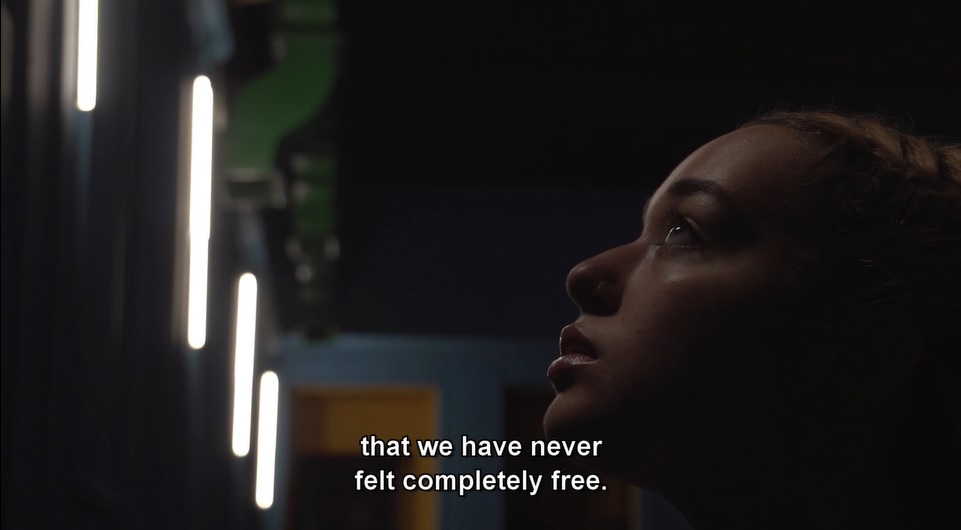
Still from Pa perkufizim. This publication has been produced with the assistance of the European Union. The contents of this publication are the sole responsibility of KosovaLive and can in no way be taken to reflect the views of the European Union or IKS, and Lens or FES.
Kosovalive uses media as a means of education, dialogue and equality. Since 2015, KosovaLive houses the GlobalGirl Media Kosova bureau, which has been awarded 9 honors and awards working in getting girls’ and young women’s voices heard through media.
GlobalGirl Media, a 501 (c) (3) non-profit organization, is dedicated to empowering high school age girls from under-served communities around the world through media, leadership and journalistic training to have a voice in the global media universe and their own futures.
GlobalGirl Media invests in girls to become their own agents of change in bridging the gender digital divide, providing concrete skills with which to improve their personal situations. They believe working with young women around the world to find and share their authentic voice is an investment in our global future.
Post Views: 6,774 -
ANNOUNCING OUR COVID #IRL VIDEO SERIES
16 Stories, 16 Girls, 8 CountriesA look at the pandemic through the critical lens of girls of color, globallyHighlighting the challenges, new ideas, and hopes of a generation of young womenthat is proving itself vital in leading the change we want to see in the world. This series wasproduced over the course of the last two months, under the challenging lockdown conditions of quarantine,shot entirely by GlobalGirl media reporters from their homes, neighbourhoods and places of work.We are proud to announce a partnership with Chime for Change, who will be sharing our first three stories here:Chime Through The Years, The Female Fabric, is a series curated by CHIME Managing Editor Mariane Pearl featuring stories from the CHIME journalism platform archives by women around the world.Post Views: 5,889




